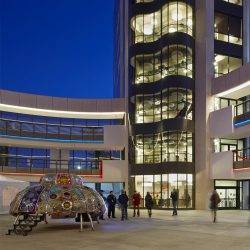To provide the best experiences, we use technologies like cookies to store and/or access device information. Consenting to these technologies will allow us to process data such as browsing behaviour or unique IDs on this site. Not consenting or withdrawing consent, may adversely affect certain features and functions.
The technical storage or access is strictly necessary for the legitimate purpose of enabling the use of a specific service explicitly requested by the subscriber or user, or for the sole purpose of carrying out the transmission of a communication over an electronic communications network.
The technical storage or access is necessary for the legitimate purpose of storing preferences that are not requested by the subscriber or user.
The technical storage or access that is used exclusively for statistical purposes.
The technical storage or access that is used exclusively for anonymous statistical purposes. Without a subpoena, voluntary compliance on the part of your Internet Service Provider, or additional records from a third party, information stored or retrieved for this purpose alone cannot usually be used to identify you.
The technical storage or access is required to create user profiles to send advertising, or to track the user on a website or across several websites for similar marketing purposes.
 Lenovo has released a study on ‘Britain’s evolving workplace’ (registration). It claims that more than three quarters (76 per cent) of those that have no commute by working from home are overall satisfied with their job and a third (37 per cent) of those surveyed admit to choosing their current role based on its close proximity to their home. The report claims that the changing nature of the modern workplace benefits both workers and employers, with one in ten workers most productive outside of typical 7am to 6pm working hours and a quarter (26 per cent) wishing to work more flexible hours.
Lenovo has released a study on ‘Britain’s evolving workplace’ (registration). It claims that more than three quarters (76 per cent) of those that have no commute by working from home are overall satisfied with their job and a third (37 per cent) of those surveyed admit to choosing their current role based on its close proximity to their home. The report claims that the changing nature of the modern workplace benefits both workers and employers, with one in ten workers most productive outside of typical 7am to 6pm working hours and a quarter (26 per cent) wishing to work more flexible hours.









 Many built environment businesses are adopting increasingly ambitious sustainability commitments reports the UK Green Building Council in its third annual report ‘Leading the Way’. This presents trends and analysis from research conducted as part of UKGBC’s annual Sustainability 360 Reviews, which look at sustainability trends and insights amongst UKGBC’s 50 industry-leading Gold Leaf member businesses.
Many built environment businesses are adopting increasingly ambitious sustainability commitments reports the UK Green Building Council in its third annual report ‘Leading the Way’. This presents trends and analysis from research conducted as part of UKGBC’s annual Sustainability 360 Reviews, which look at sustainability trends and insights amongst UKGBC’s 50 industry-leading Gold Leaf member businesses.


 By failing to properly explore what service provision is offered in the event of a serious incident such as flood or fire, businesses are leaving themselves vulnerable to a failing of business continuity, a new survey from Regus suggests. The survey found that 40 percent of businesses rely solely on what their workplace recovery provider tells them, or what is in their contract to protect them from a crisis. The lack of testing of recovery facilities by businesses also leaves them open to further disruption, with businesses at risk of finding that, in reality, the location they have been allocated is too small, with seats only available on a first-come-first-served basis, leaving business-critical staff unable to work.
By failing to properly explore what service provision is offered in the event of a serious incident such as flood or fire, businesses are leaving themselves vulnerable to a failing of business continuity, a new survey from Regus suggests. The survey found that 40 percent of businesses rely solely on what their workplace recovery provider tells them, or what is in their contract to protect them from a crisis. The lack of testing of recovery facilities by businesses also leaves them open to further disruption, with businesses at risk of finding that, in reality, the location they have been allocated is too small, with seats only available on a first-come-first-served basis, leaving business-critical staff unable to work.

















March 5, 2019
Designing a better workforce: how workplace design can impact wellbeing
by Mary Lawrence • Comment, Wellbeing, Workplace design
(more…)